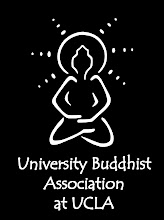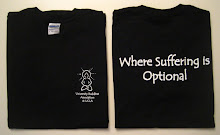I've been recently studying historical timelines and stumbled upon a
Buddhist historical timeline. It's just about one of the most awesome buddhist resources I've seen so far because not only is it a timeline on Buddhist events since the life of Siddhartha, but also compares the Buddhist timeline side-by-side with "World Figures and Events", many of which are of other religions or related to Buddhism. It really gives you a sense of how Buddhism fits into the world history context, and this, I think, is especially important because we rarely get to see Buddhism in this "bigger picture" - at least in America.
Just as a little teaser, the timeline shows that the First Buddhist Council at Rajagaha after the Parinirvana (death and final release) of the Buddha happened in the same century (5th) as the Greek-Persian Wars and the time of Plato and his contemplations about the ontological, epistemological, ethical, and aestheticestions quof life. Props to
Buddhanet for having this on their site.







